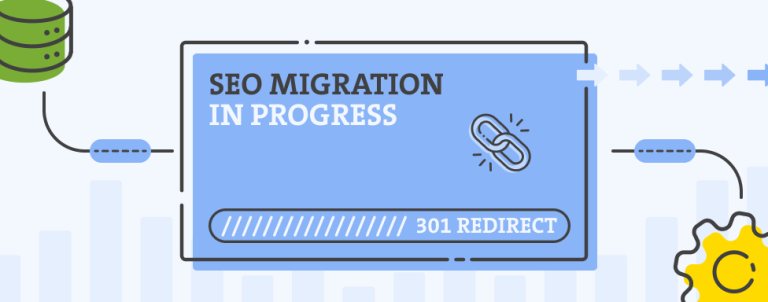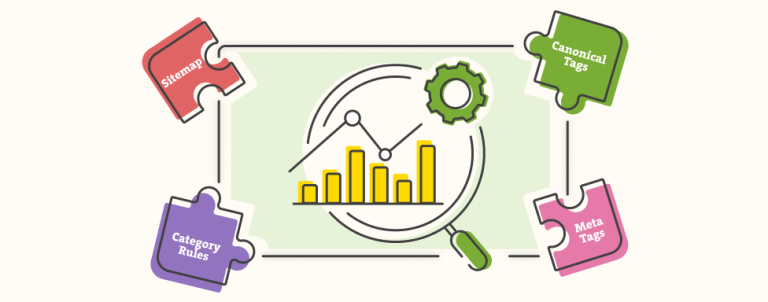We already talked about the main reasons to prioritize PPC Audit, and we also published a quick guide for PPC Audit. Sometimes, one of the most valuable lessons, along with the previously mentioned ones, is also what to avoid. That leads us to today’s topic, where we dive into the most commonly found PPC mistakes while auditing clients’ campaigns. Having done many of them, we decided to detect the mistakes we see repeating among clients, for which we did a PPC audit. And also to help you avoid making the same with your campaigns.
1. Incomplete or Wrong Overall Tracking and Setup
Setting the right foundation is the first step to all successful businesses, not just selling-related. You can only expect a positive outcome if you set the right foundation for your campaigns. That relates to Conversion Tracking setup (GTM and GA) and Campaigns setup. It may seem obvious to some extent, but don’t rush to conclusions before checking out the next example.
We had a client who didn’t set conversion value tracking for some time, and after setting it, we saw that the conversions in the Google Ads interface were tracked twice. That means the client made less revenue for the same ad spent than it seemed. It is nearly impossible to measure the real impact of advertising efforts and the value it is making for the invested money without proper tracking.
Additionally, retargeting campaigns with a high possibility of conversion target events like “add to cart” and “remove from the cart.” You wouldn’t want to miss these highly possible conversions intentionally. So, make sure to get back on track with the basic setup. And if you’re unsure, it’s better to ask for help than to miss out on countless possibilities.
2. Not Optimizing Your Keywords
So, this is one of the PPC mistakes that’s often found unimportant, but we can’t stress enough the importance of finding the right keywords for your campaigns. We’ve seen it all.
- The same keywords in different campaigns that end up competing with each other. You already have numerous competitions which you need to compete with, at least you can eliminate battling yourself.
- Keywords that are all set to broad match and require constant optimization through negative keywords if you don’t want to spend your budget on irrelevant queries.
- Rarely done keyword optimization and running campaigns on outdated search terms. We had a client who spent $1000 throughout the year bidding on an outdated keyword that did not get them a single conversion.
- Bidding on irrelevant keywords with a small amount of search volume instead of appropriate ones.
And we could go on. Keywords are important. You don’t want to base your strategy on outdated keywords or keywords no one searches for. Keywords need to be relevant to your customers, so pay attention to them and do your homework with keyword research.
3. Ineffective Ad Copy
When creating ad copy, it’s important to follow the best practices. That means that the keyword you want to target needs to be in your heading and description, and don’t forget the landing page as well. Regarding the landing page, the keyword needs to be included, or the content must align with its message. Ultimately, it will get you a better ad quality score and lower CPC.
4. Unclear Campaign Structure
As far as overall optimization is concerned, we encourage you to review your account when optimizing manually. Yes, Google’s recommendations include helpful information and tips, but better solutions for you and your business may exist. Look at the structure of your campaign. Ask yourself if there are keywords misplaced in the wrong ad group, especially if the client has a complex product structure.
Moreover, using a single keyword ad group (SKAG), that works perfectly fine for some merchants, may result in a large campaign structure, which takes a lot of work to maintain and optimize. There’s also the possibility of cannibalization because of the structure’s size and the campaign’s complexity. Testing different ad group structures, keyword match types, and bid strategies is essential to determining what works for you.
5. Focusing on one campaign type
Sticking to one campaign type that works well for you may seem convenient, but it can limit your ad revenue. When you diversify your campaign types, you can reach a broader audience segment and capture a variety of user behaviors. For instance, only focusing on search campaigns and neglecting display or video campaigns may result in missing out on customers who prefer visual content. Remember, the digital landscape is dynamic, and user preferences evolve—adapting your strategy accordingly ensures a more holistic and impactful campaign. Each campaign type serves a unique purpose, and understanding the nuances of your target audience can help you tailor your approach effectively.
In conclusion, conducting a thorough PPC audit is not merely a task—it’s a strategic imperative. While these PPC mistakes may seem obvious when pointed out in text like this, they could easily be overlooked when handling multiple tasks in a daily routine. The highlighted mistakes are not just procedural missteps; they directly impact your revenue. A failure to address them can result in missed opportunities, ineffective spending, and diminished returns on investment. Regularly reassess and adapt your approach to stay ahead in the ever-evolving digital advertising landscape. You can count on us for help if you need it.






